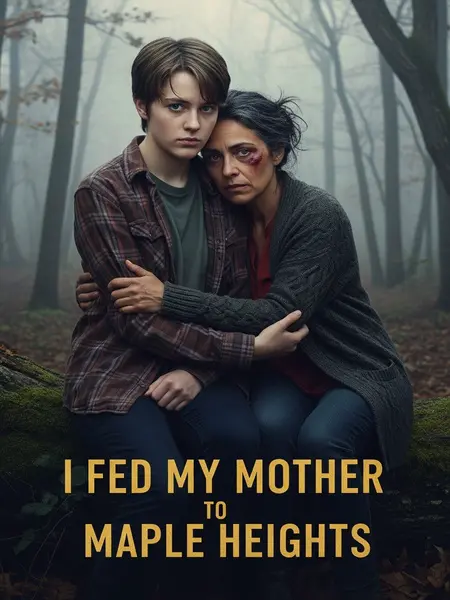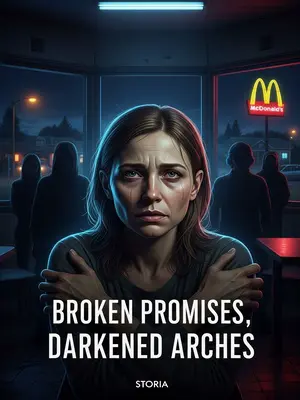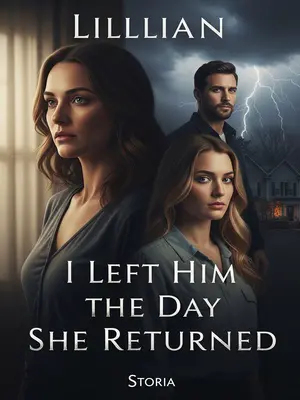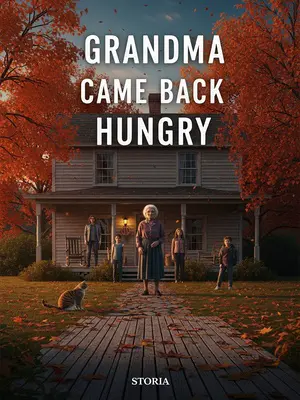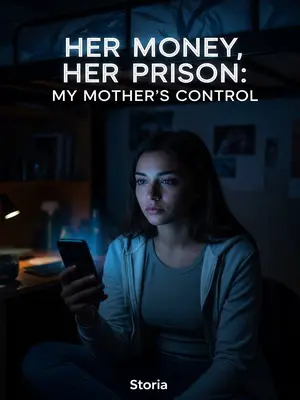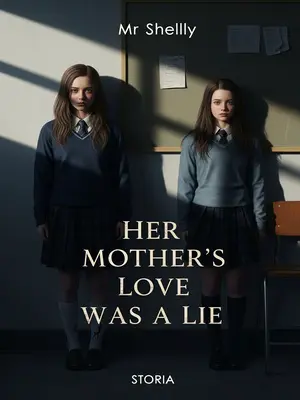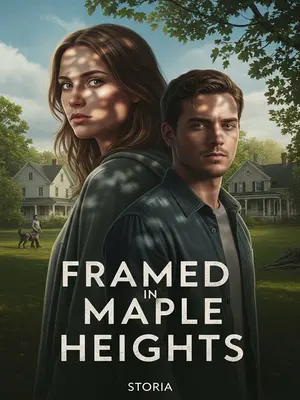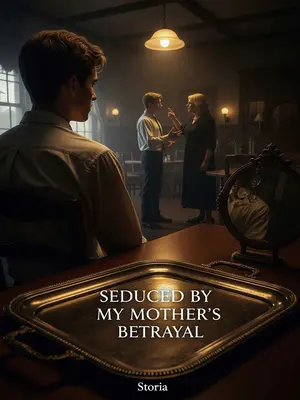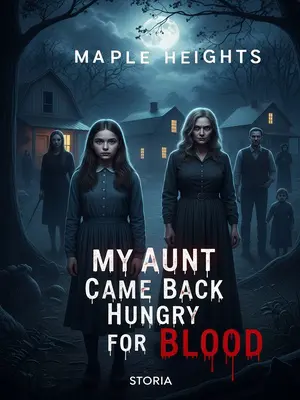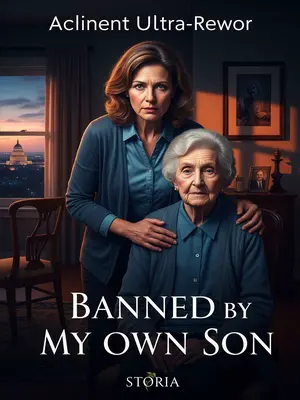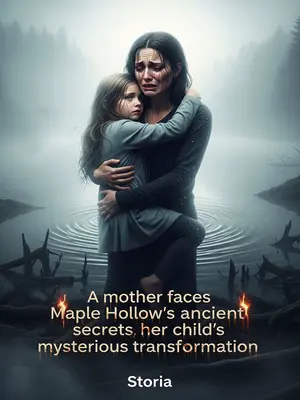Chapter 1: The Secret Behind Unborn Lamb
In our hometown, there’s a dish folks swear is better than anything you’ll ever taste—better than steak at a fancy New York restaurant. They call it "unborn lamb." The words always sounded odd to me, almost unsettling, like something you shouldn’t say out loud. Every time I heard it, I felt a weird chill run through me, but nobody else ever seemed to notice.
They’d say it with that stubborn small-town pride, like the story was stitched into every family barbecue and church potluck. I heard it whispered at Little League games, over the counter at the diner, always with a wink, as if it were some local legend or secret recipe. Sometimes I’d catch myself wondering if it was all just a story, but in Maple Heights, the words "unborn lamb" hung heavy and strange—and folks acted like it was the most natural thing in the world. I couldn’t help but wonder why no one ever questioned it. Maybe they just didn’t want to know the answer.
It’s made from a premature lamb, taken from a ewe that’s lost her lamb after a terrible scare. The meat is so tender it melts in your mouth. The fat—softer than whipped butter. Just one bite, and a rich, savory flavor lingers on your tongue, haunting you long after you’ve swallowed.
The old-timers would close their eyes when they talked about it, like they could taste it all over again. They’d tell you about the fat dripping off the bone, how you could cut it with a butter knife. Sometimes, I’d catch myself holding my breath, waiting for the next word. The taste, they’d say, would haunt you—in a good way—for days after. It was reserved for the most special occasions, and folks swore it brought good luck, though no one ever explained why. I always wondered if they really believed that, or if it was just something they told themselves.
My dad’s the best at making unborn lamb in three counties. People say it like a badge of honor, and he sure acts like it’s something to be proud of. For a second, I almost believed it too. But here’s the thing: we don’t even own a single sheep.
People would drive in from miles around, hoping to see if the rumors were true. Sometimes, I’d hear them ask at the gas station or the hardware store, their voices low, like they were sharing a secret. But our backyard was always empty—not a single bleat or patch of wool anywhere. I’d stand at the window, staring out at the grass, trying to see what they saw. It was one of those mysteries you weren’t supposed to question. But I couldn’t stop myself from wondering.
One day, curiosity got the best of me, and I finally asked my mom why that was. The moment the words left my mouth, her face went ghost-white. Her hands, resting on her pregnant belly, started to tremble, fingers twitching like she was trying to hold something in that wanted out.
She looked at me like I’d just said something wicked, something that should never be spoken. For a moment, there was nothing but silence between us. Her fingers gripped her belly so tight her knuckles turned white. I thought she might cry, or maybe scream, but instead, she just turned away, voice flat, telling me to go set the table. That look—like I’d betrayed her somehow—never left me. It stuck with me, like a cold draft you can’t shake, no matter how many blankets you pile on.
That spring, a new teacher showed up at our school. His name was Mr. Sullivan. He was pale, always sharp-dressed, and, if I’m being honest, really good-looking. I’ll admit, he stood out in Maple Heights. But nobody in town liked him—not even a little.
He wore polished shoes and a crisp tie, the kind of guy who looked like he belonged in a city classroom, not out here where the dust never really leaves your boots. The PTA moms gave him the side-eye at the bake sale, and the guys at the barbershop joked about him behind his back. In a town like ours, outsiders always had to prove themselves. Mr. Sullivan never even got the chance.
The women who spent their afternoons on the porch outside the old general store, cracking sunflower seeds, would say he was strange. They’d lean back in their creaky chairs, spitting shells into a coffee can, and whisper about the way he walked. Or how he never stayed long at church socials. One time, I heard Mrs. Harper say, “He’s just got that look, you know?” But I didn’t know. I’d look at him, trying to see what they saw. Mr. Sullivan had two eyes and a nose—how could he be strange? Maybe I just didn’t get it.
They’d gossip in low voices, picking apart every little thing he did. Sometimes it was the way he held his coffee cup, sometimes the way he’d walk past without saying hello. He seemed normal enough to me, if a little too clean-cut for Maple Heights. But what did I know?
Later, as if to prove he was "normal," Mr. Sullivan dragged my mom into the cornfield behind the school.
It happened after school, when most of the teachers had gone home. I saw them from a distance, Mr. Sullivan gripping my mom’s arm as they disappeared between the tall, dry stalks. My stomach twisted. I didn’t understand what was happening—not then.
When they came out, my mom’s hair was a mess, her face streaked with tears, and there was blood on her jeans.
She stumbled, barely able to stand. Her eyes were wild, darting around like a trapped animal. I’d never seen her look so broken. I wanted to run to her, to help, but something in her face made me freeze where I stood.
When my dad found out, he was so angry the veins in his neck looked ready to burst. For a second, I thought he might explode. But instead of going after Mr. Sullivan, he beat my mom half to death.
His rage was like a thunderstorm—loud, sudden, impossible to stop. The whole house shook with the sound of his fists. I could hear my mom’s cries from all the way down the block. Nobody came to help. In Maple Heights, family business stayed behind closed doors, no matter how loud the storm got.
I ran to her, throwing myself across her back, crying out, “Dad, stop! Don’t hurt Mom! It was Mr. Sullivan who dragged her away, please!”
My voice was hoarse, tears streaming down my face. I clung to her, desperate to shield her from the blows, but Dad was too strong. My heart pounded so hard I thought it might burst. I kept yelling until my throat went raw, but it didn’t matter.
My dad kicked me hard in the back. “Out of all the women in town, why’d he pick your mom? She must’ve given him a sign.”
He spat the words like poison. There was a pause, a beat of pure hate, and then he grabbed me by the collar and tossed me aside. My back slammed into the wall, pain shooting up my spine. I tried to get up, but my legs wouldn’t work. I just lay there, stunned.
He grabbed me by the back of the neck and tossed me aside, then kept hitting and kicking my mom. At first, she could still scream, but after a while, she just went quiet. I heard her breath hitch, then nothing.
The room filled with the sickening thuds of fists on flesh. I covered my ears, but I could still hear everything. When the silence finally came, it was worse than the noise.
My dad dragged her by one leg and tossed her out on Ironwood Ridge.
He hauled her through the front yard, past the mailbox and the old swing set, all the way to the edge of the woods. Ironwood Ridge was a place kids were warned about—deep trees, wild animals, and stories that kept you up at night. He didn’t look back once. I watched, feeling sick, wishing I could do something—anything.
It was only early spring, and the nights were still freezing. If she spent the night out there in just her thin clothes, she’d die for sure.
The wind whipped through the trees, rattling the windows. I pulled my jacket tighter around me, thinking of my mom shivering alone in the dark, frost settling on her hair. The thought made my stomach twist.
I wanted to beg Dad for mercy, but he slapped me a few times. “Useless brat! Just a worthless woman—if she dies, she dies. I’ll find you a new mom.”
His breath reeked of whiskey, and his words cut deeper than any slap. He looked at me like I was nothing, just another problem to solve. I wiped the blood from my lip, fighting the urge to cry in front of him. I bit the inside of my cheek, tasted blood, and stared at the floor.
With that, he took a few more swigs from his whiskey bottle and staggered off toward Miss Georgia’s house at the edge of town.
Miss Georgia was the kind of woman who always had a pie cooling on her windowsill and a rumor on her tongue. I watched his shadow disappear into the night, the bottle swinging from his hand. The house felt emptier than ever, and I knew he wouldn’t be home till morning.
As soon as he left, I hurried into the back room, grabbed a book of matches and some incense sticks, and went looking for my mom.
I stuffed the incense into my jacket pocket, hands shaking. My breath fogged up the window as I checked outside. The moon was barely a sliver, and the woods looked like a black sea. Still, I couldn’t just sit and do nothing. I had to try.
Out here, it was so dark I couldn’t see my own hand in front of my face. Without some kind of light, I’d get lost—never mind finding anyone.
Every branch seemed to reach out and grab at me as I stumbled down the path. My sneakers crunched over dead leaves, and every sound felt too loud. I kept thinking about all the things that could go wrong—bears, coyotes, or worse. My heart hammered in my chest.
I’d thought about taking a candle, but Dad kept track of them—if I took one, he’d notice for sure. We had plenty of incense left over from Grandma’s funeral last year. Dad never counted those, so if I took a few, he’d never know. I felt a little guilty, but I did it anyway.
The smell of incense always reminded me of Grandma—sweet, smoky, and a little sad. I lit one, watching the orange glow flicker in the darkness. It wasn’t much, but it was all I had.
“Mom! Mom! Where are you?” I yelled as loud as I could.
My voice bounced off the trees, echoing back at me. The woods felt endless, swallowing up my words. I listened, hoping for any sign of her—a cough, a sob, anything. All I got was silence.
My voice echoed through the woods, mixing with the low howls of coyotes somewhere in the dark. I started to get scared, my breath coming faster.
The coyotes sounded closer than I liked, their yips sharp and wild. My heart raced, and I gripped the incense tighter, wishing I’d brought a flashlight or even a pocketknife. Every shadow looked like it might come alive.
The old folks said there were wild things up on Ironwood Ridge. A few years back, Aunt Ruth had left her newborn out there, and by nightfall, all they found was a tiny blanket and a patch of blood. The story always made my skin crawl.
That story used to keep me up at night. I remembered the way my cousins whispered about it at sleepovers, daring each other to go near the ridge after dark. Now, I was out here alone, and the fear felt real, not just a story.
I grew anxious and kept calling for my mom again and again: “Martha, where are you?”
“I’ve come to get you.”
“Martha!”
“Martha, come home!”
Each time I called her name, my voice got weaker. The cold seeped into my bones, and my breath came out in shaky puffs. I kept thinking maybe I’d find her curled up under a tree, waiting for me. I tried to hold onto that hope, but it was slipping away.
The incense flickered in my hand. Sweat beaded on my forehead. Why wasn’t my mom answering? Was she—
I didn’t dare finish the thought.
I swallowed hard, trying not to imagine the worst. My fingers trembled so much I almost dropped the incense. The silence pressed in, thick and heavy.
Suddenly, a cold wind swept through the trees. The incense in my hand, not even halfway burned, snapped in two and fell at my feet.
The wind howled, and the flame sputtered out. I was left standing in pitch black, the kind that makes you feel small and helpless. My heart skipped a beat.
For a second, I couldn’t move. My eyes darted around, searching for any scrap of light. The woods felt alive, breathing all around me. I hugged myself, wishing I was back in my warm bed.
Suddenly, someone slapped me hard on the shoulder.
I yelped, spinning around so fast I nearly tripped. My skin prickled with goosebumps, and my breath caught in my throat.
Moonlight caught a familiar face. It was my mom. She looked pale but steady. Thank God, she was okay.
Relief washed over me, so strong my knees almost buckled. I reached out, afraid she might vanish if I let go. Her hair was tangled, and her eyes looked hollow, but she was alive. That was all that mattered.
I grabbed her hand. “Mom, Dad’s gone. I’ll take you down the mountain.”
I squeezed her fingers, trying to let her know she wasn’t alone. My voice shook, but I tried to sound brave for her sake. The air was so cold it burned my lungs.
My mom looked at me, her face icy, not a trace of emotion. Her stare made my skin crawl. I tried to smile and slipped my hand into hers, hoping to warm her up.
Her silence was unsettling, the kind that makes you wonder if you’ve done something wrong. I forced a smile, hoping she’d soften. Her hand felt colder than the night air.
“Mom, I just heard a pack of coyotes howling. It’s really scary. Let’s go, okay?”
I tried to sound casual, but my voice cracked. I kept glancing over my shoulder, half-expecting something to leap out of the shadows. I squeezed her hand a little tighter.
As soon as I finished, she yanked her hand away. I lost my balance and hit my head hard on a rock.
Pain shot through my skull, stars dancing in my vision. I blinked back tears, too stunned to speak. The ground felt cold and unforgiving beneath me.
My mom snorted. “Would you really be that kind? You can’t wait for me to die, can you?”
Her words stung more than the fall. I looked up at her, confused and hurt. She stared down at me, her face twisted with anger and something else—something like betrayal.
My mom had been tricked into coming to Maple Heights by my dad. She hated this town, and she didn’t like me either. Dad told me that when I was born, she tried to smother me with a pillow more than once. For some reason, she eventually agreed to stay. But she still didn’t like me. She always said I was a reminder of her shame, and whenever she thought about the past, she’d beat me with an extension cord or lock me out with no supper.
I remembered every scar, every night spent shivering on the porch, hoping she’d change her mind and let me in. Still, I tried to love her, because she was my mom. That’s just what you do, right?
Last month, my mom had a nightmare. She dreamed again about the day she first came to Maple Heights. Back then, my dad, trying to break her, stripped her naked and chained her to the porch with a dog chain. As long as you paid, you could touch her.
The memory haunted her, turning her eyes hollow and her voice brittle. Sometimes, she’d stare at the porch for hours, lost in a place I couldn’t reach. I wished I could erase those memories for her, but I was just a kid—helpless.
My mom was terrified and furious, like she was on fire inside. She paced the house, agitated, and when she saw me come home from school, she snapped. She slapped me so hard my face went numb and my left ear rang. She wasn’t done—she grabbed my hair, blamed me for ruining her life, smeared trash in my eyes, and threw me out, locking the door behind me.
I can still feel the sting of her hand, the humiliation burning in my cheeks. The trash stung my eyes, and the cold bit at my skin. I waited outside, hoping she’d open the door, but she never did.
It was snowing hard that day. I couldn’t see a thing and nearly froze to death. But I don’t blame my mom.
I remember watching the snowflakes settle on my arms, numb from the cold and the pain. Even then, I told myself she was hurting too, that maybe one day things would be different.
I looked up at her, meeting her eyes. “You’re my mom. How could I ever wish you dead? I still want to go to college and take you out of this place.” My eyes stung, and my voice got small. “I get why you hate me…”
I wiped my eyes, trying to sound braver than I felt. The words tumbled out, raw and honest. I wanted her to know I still cared, even if she never did.
She stared at me for a long time, then quietly pulled me up off the ground. I took her home.
Her grip was gentle, almost careful, as she helped me to my feet. We walked back together, neither of us saying a word. The silence between us was heavy, but for once, it felt like maybe it could hold something other than pain.
